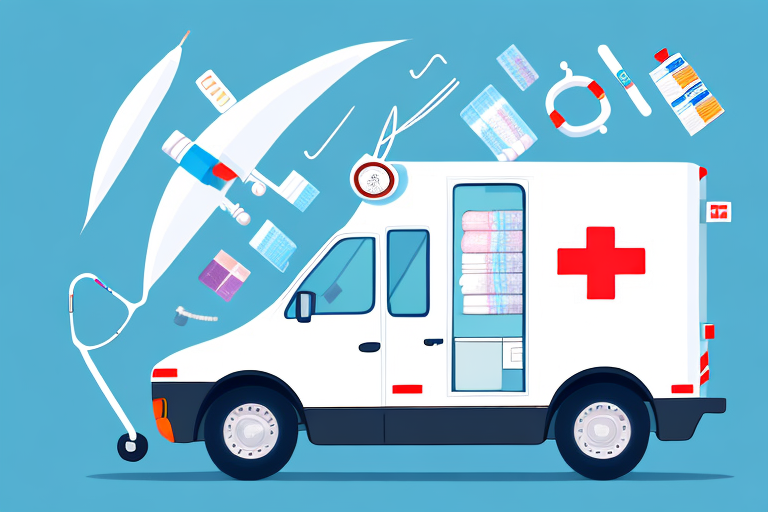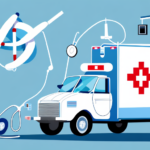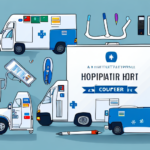Optimizing Medical Supply Delivery in Healthcare
The delivery of medical supplies is a critical aspect of healthcare supply chain management. Ensuring the safe and efficient transportation of these essential items is paramount, especially in the face of challenges such as stringent regulations and unexpected crises like the COVID-19 pandemic. Effective delivery systems are vital for maintaining the integrity of medical supplies and supporting healthcare providers in delivering quality patient care.
Challenges in Medical Supply Delivery and Logistics
Increasing Global Demand
The global demand for medical supplies has surged, particularly during health crises. Traditional supply chain methods often fall short in meeting these heightened demands, resulting in delays and inefficiencies. According to the World Health Organization, the pandemic highlighted significant gaps in supply chain resilience.
Specialized Handling Requirements
Medical supplies frequently require specialized handling, such as temperature-controlled environments, to maintain their efficacy. The complexity and cost of providing these conditions add significant challenges to the logistics process.
Supply Chain Transparency
Lack of transparency and visibility in the supply chain complicates the tracking of medical supplies, making it difficult to identify bottlenecks or delays. Regulatory and compliance issues, especially in a global context, further exacerbate these challenges.
Technological Solutions for Enhanced Supply Chain Management
Blockchain Technology
Blockchain offers a decentralized ledger system that enhances transparency and security in the supply chain. It helps prevent counterfeit products from entering the supply chain, ensuring the authenticity of medical supplies. A study by NCBI highlights the potential of blockchain in healthcare logistics.
Internet of Things (IoT)
IoT devices enable real-time tracking of medical supplies, monitoring factors like temperature and humidity. This real-time data helps in maintaining the quality of supplies and ensuring timely deliveries.
Artificial Intelligence (AI) and Route Optimization
AI-powered systems can optimize delivery routes, minimizing delays and reducing transportation costs. By analyzing traffic patterns and other variables, AI ensures that medical supplies reach their destinations efficiently.
The Medical Courier Delivery App: Features and Benefits
Real-Time Tracking and Notifications
The Medical Courier Delivery App allows healthcare facilities to place orders and track deliveries in real-time. Notifications and alerts keep all stakeholders informed about the status of their shipments, enhancing transparency and accountability.
Efficient Order Matching
The app intelligently matches orders with available courier service providers, ensuring that deliveries are handled by the most appropriate and efficient couriers in the area.
Temperature-Controlled Deliveries
For sensitive medical supplies, maintaining optimal conditions during transit is crucial. The app supports temperature-controlled deliveries, ensuring that supplies remain effective upon arrival.
Cost and Time Savings
By optimizing routes and automating scheduling, the app reduces delivery times and costs. Healthcare facilities benefit from consolidated shipments and minimized errors, leading to significant operational efficiencies.
Real-World Success Stories
Numerous healthcare providers worldwide have successfully implemented the Medical Courier Delivery App. For instance, a healthcare system in the UK reported a 40% reduction in delivery times and a 15% decrease in costs after adopting the app. Similar successes have been observed in regions across the US, Europe, and Asia, showcasing the app's global impact.
Future Innovations in Medical Supply Chain Management
Drone Deliveries
Drones are emerging as a viable solution for delivering medical supplies to remote or hard-to-reach areas. They offer speed and reliability, especially in emergency situations. Research from FAA supports the integration of drone technology in medical logistics.
Advanced Blockchain Applications
Future developments in blockchain technology promise even greater transparency and security, further safeguarding the integrity of the medical supply chain.
Best Practices for Implementing the Medical Courier Delivery App
Integration with Existing Systems
Seamlessly integrating the app with current supply chain management systems is essential for maximizing efficiency and ensuring data consistency.
Staff Training and Adoption
Providing comprehensive training to staff ensures that the app is used effectively, minimizing errors and enhancing overall performance.
Data Security and Compliance
Ensuring the security and privacy of patient data is paramount. The app employs robust encryption and complies with regulations such as HIPAA to protect sensitive information.
Choosing the Right Medical Delivery Service Provider
Selecting a reliable service provider involves evaluating their experience, track record, certifications, and compliance with industry standards. Healthcare providers should prioritize providers that offer specialized equipment and have a proven history of safe and timely deliveries.
Conclusion
The Medical Courier Delivery App represents a significant advancement in the management of medical supply chains. By leveraging cutting-edge technologies, the app enhances transparency, efficiency, and reliability in the delivery process. Healthcare providers benefit from reduced costs, improved delivery times, and enhanced patient care. Adopting best practices and choosing the right service provider are crucial steps in maximizing the app's benefits, ultimately ensuring the safe and timely delivery of critical medical supplies.






















